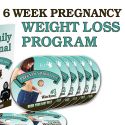The subject of constipation, and whether or not it is normal in the first trimester came up at our last mommy-baby group, so here’s a little bit of information about this first-trimester nuisance.
The short answer is that yes, constipation is a very common symptom in the first trimester because pregnancy hormones make peristaltic movements more sluggish and make muscles loose, which slows down the passage of stools. The uterus, now the size of a grapefruit, also puts pressure on the bowel, inhibiting its normal activity.
What can you do?
1. Eat fiber-rich foods
Fiber is the key to keeping bowel movements regular. And nothing beats fresh, raw fruit and vegatbles for fiber content. Other fiber-rich choices include whole grains, and products made from them, legumes (pulses) like beans and peas, and dried fruit, especially plums. Adding a sprinkling of linseeds to yogurt or other foods also helps.
Foods to avoid include ones made with refined white flour.
Eating less but more often may also help to make you feel more comfortable.
2. Drink plenty of fluids
Fluid is required to keep stools soft and helping it keep moving along the digestive tract, so drinking more will definitely help. Some people swear by hot water flavored with freshly squeezed lemon juice, while others find 100% fruit juice (especially prune) very effective.
3. Don’t hold your bowel movements
Holding on to your bowel movements regularly may weaken the muscles and lead to constipation. Allow yourself time to go to the bathroom. It is said that one mugful of food or drink at breakfast is enough to trigger bowel activity, so if you’ve been in the habit of skipping breakfast, try eating or drinking something that’s about a mugful in volume, and allow yourself time to use the bathroom before you have to dash off to work.
4. Check your supplements and medications
Calcium and iron can cause constipation, see if any of the supplements or medications you are taking contains these elements, and discuss with your doctor the possibility of not taking them or using something else. Many prenatal vitamin formulations have high levels of iron. Try switching to a lower-iron formulation and see if it helps. (If you cannot find one here in Hungary, you can always switch to taking the most essential pregnancy vitamin, folic acid, separately.)
5. Exercise!
If you move, your bowels move. Keeping active encourages an active bowel, so try to find an exercise regime that you enjoy and that does not strain you overtly compared to your pre-pregnancy activity level. If you are not at high risk for miscarriage (i.e., have a history of miscarriages or some other health problem), there is no reason you cannot take up walking or swimming as a mode of exercise during pregnancy. If you were used to jogging or aerobics, you can continue as before. Only highly jarring sports or sports where the likelihood of falling is high are discouraged, such as skiing, horseback riding, bungee jumping…
(Then again, I never saw a pregnant woman who suddenly had a desire to take up bungee jumping in her first trimester…)
———————————-
Réka Morvay is a doula and childbirth educator living in Budapest, Hungary.








 ....
....



